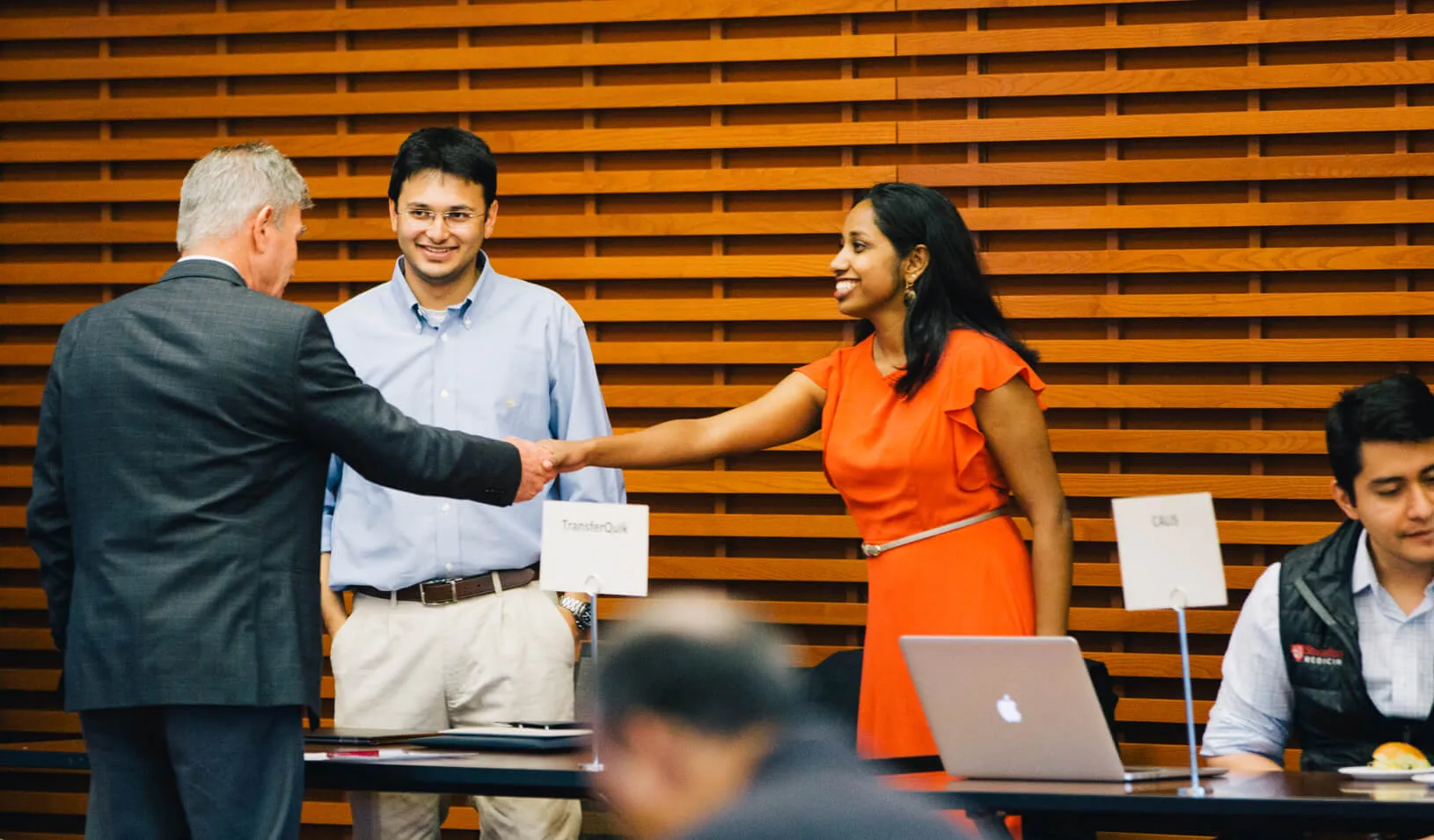June 20, 2018
Sneha Iyer, MA ’19 and Aditya Ranjan, MBA ’19, shared a similar struggle: Each time the students transferred money from their savings accounts in India to their U.S. banks, they lost money in transaction and user fees, and taxes. “We talked to people we knew and found it was a pain point for a lot of us,” Ranjan says.
So Iyer and Ranjan began building an application that allows users to send money across borders more quickly and at a much lower cost. By leveraging cryptocurrencies that are listed on multiple exchanges, TransferQuik finds a more appropriate currency to act as the carrier to transfer the money.
The team had already raised $25,000 before they presented at Demo Day, a showcase of student work presented by Stanford Venture Studio, a program for graduate students from across the university to evaluate and experiment with ideas for products or services.
“We’re looking for advisors or experts in fintech or operations and supply chain,” Iyer says. “It was a great opportunity to get out there and share what we’re working on.”
The team was one of 14 teams who pitched their startup ideas to an audience that included investors, advisors, founders, and others from the entrepreneurial community. While some businesses are fully launched, others are in early stages. Each received coaching, expertise, and other resources through Stanford Venture Studio. Nearly 600 students make up the total of 268 teams that have participated since the beginning of the academic year.
Here is a sampling of other ventures presented at Demo Day:
Kinima Fitness
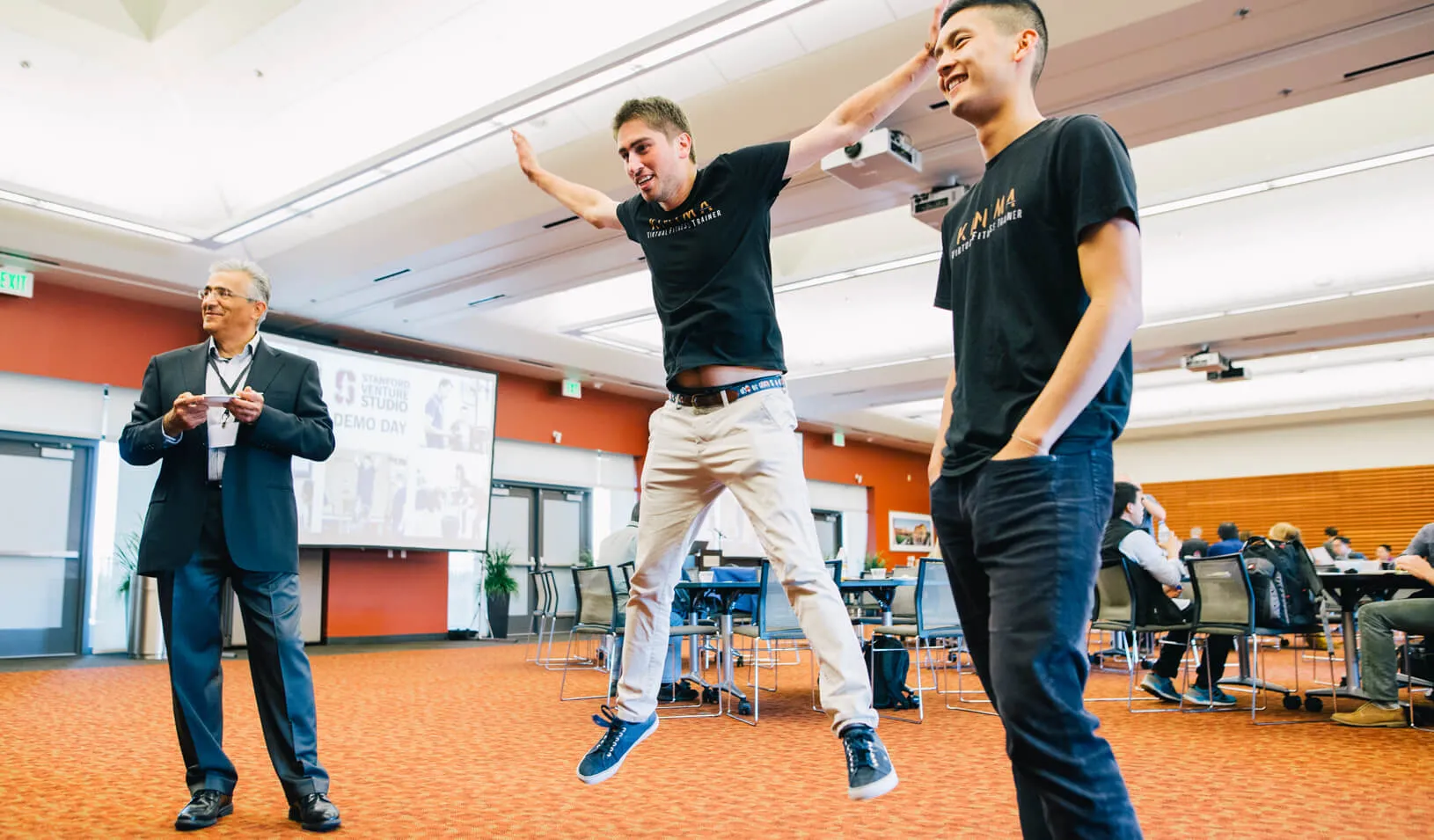
Dan Judd and Naicheng Wangyu, both MBA ’19, demonstrate Kinima, a virtual fitness trainer. | Elena Zhukova
The problem: Lifting weights and doing squats, burpees, and pushups without proper training can lead to poor form or even injury, but the cost of a trainer often dissuades people from working out altogether.
The solution: Kinima uses 3D camera technology and AI to guide users through workouts in the same way a personal trainer would. By monitoring 30 joints at 30 frames per second, Kinima displays video of the user on one side of the screen, while a “trainer” on the other corrects form, tracks reps and calories, and customizes future workouts. Dan Judd and Naicheng Wangyu, both MBA ’19, teamed up at Venture Studio to further develop Kinima, which is currently used in Stanford Court Hotels and the Hyatt in San Francisco.
Invicted
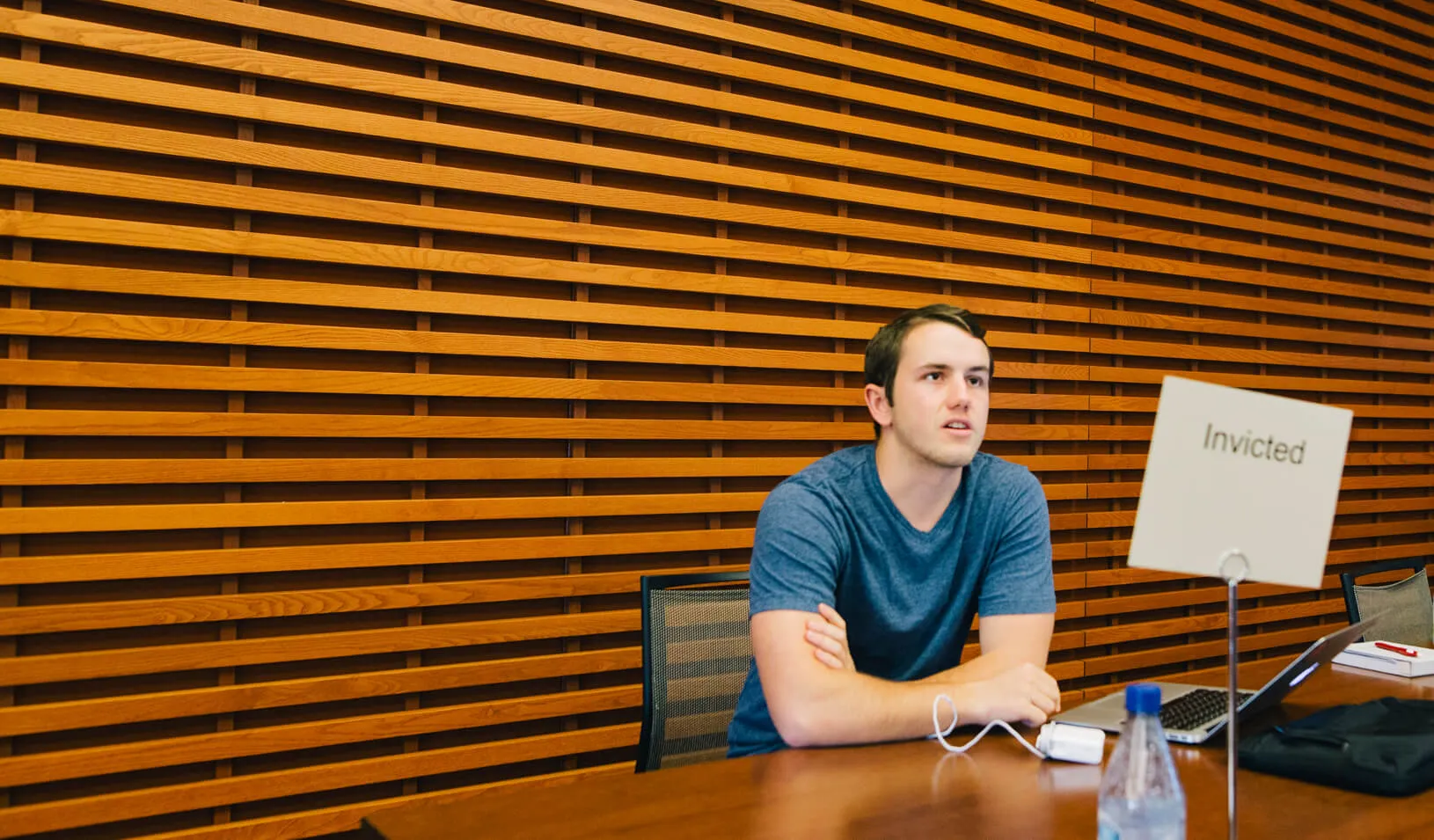
Sean Bonz, BS ’20, and his team pitched their product — a smartphone computer vision application to detect alcohol and drug impairment.| Elena Zhukova
The problem: Alcohol monitoring tests for defendants on parole, such as ankle monitoring and breathalyzers, are costly and prone to mishaps. During his eight years working in criminal law, Patrick Robinson, MBA ’19, saw these systems repeatedly fail and leave defendants discouraged.
The solution: Invicted allows people on parole to perform at-home alcohol monitoring by using the horizontal nytsagmus test, an eye-tracking analysis used by law enforcement. Robinson teamed up with Sean Konz, BS ’20, and Vineet Kosaraju, BS/MS ’20, to create the application. Through the venture, defendants would have the choice of installing the app on their mobile device instead of wearing an ankle monitor or frequenting court for breathalyzer tests.
lovenotes
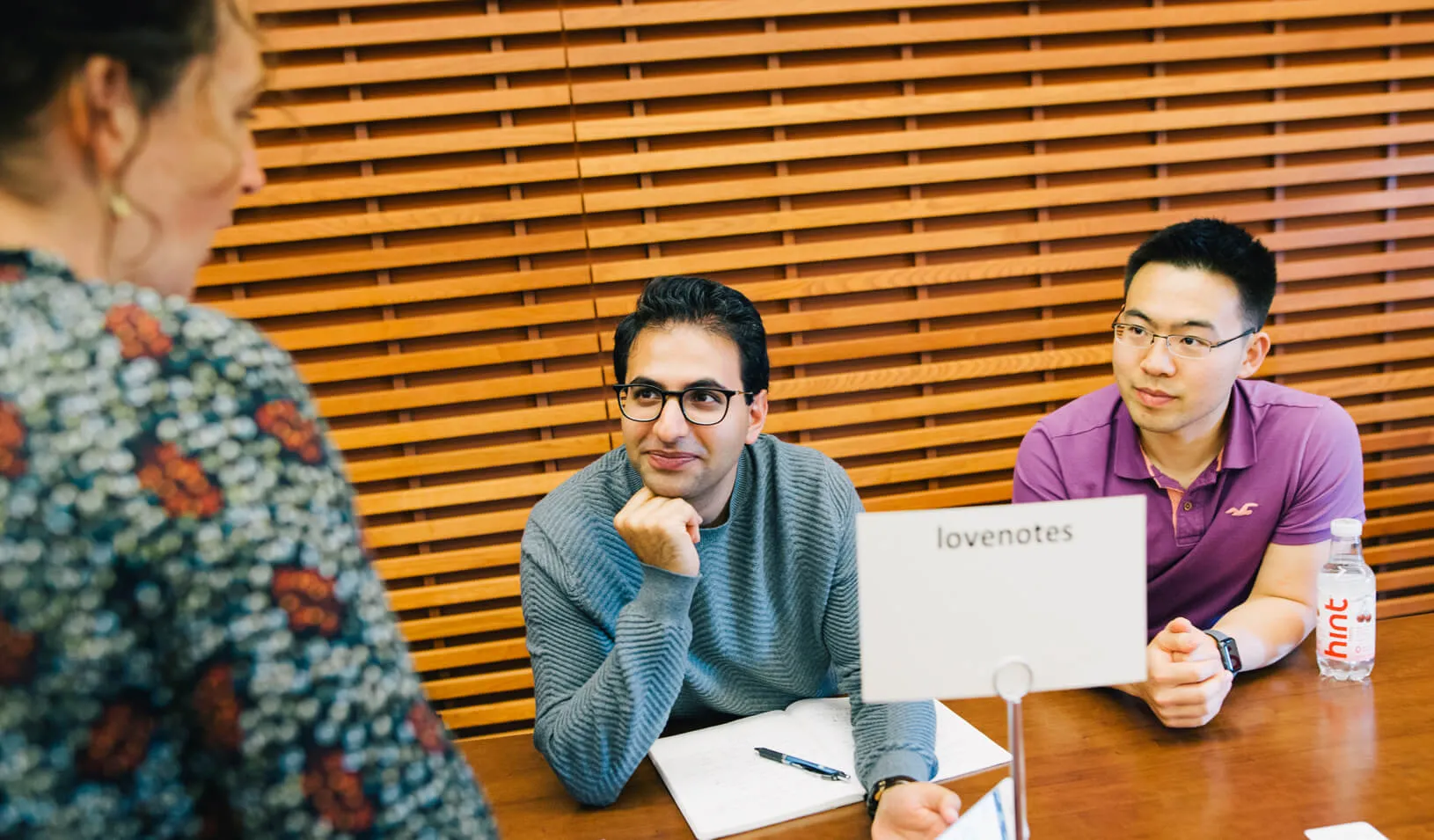
Sohayle Sizar, MBA ’18, and Michael Chen, MS ’18, shared lovenotes, a web interface that addresses physician burnout by enabling patients to sent anonymous notes of gratitude to healthcare providers. | Elena Zhukova
The problem: Burnout in the medical profession costs the nation an estimated $5 billion each year. A source of this crisis is that nurses, doctors, and staff often feel underappreciated.
The solution: lovenotes began when Sohayle Sizar, MBA ’18, wanted to share his admiration for his classmates but stay anonymous. When MD/MBA students used Sizar’s interface, they asked if it could be set up in hospitals to help staff who often feel underappreciated. During early phases, 4,500 notes were sent, and 75% reengaged with the platform in the first week. “We are prioritizing community and making people feel loved for who they are,” Sizar says. Lovenotes is piloting the program with partners outside of the health care industry.
Latin American Leadership Academy
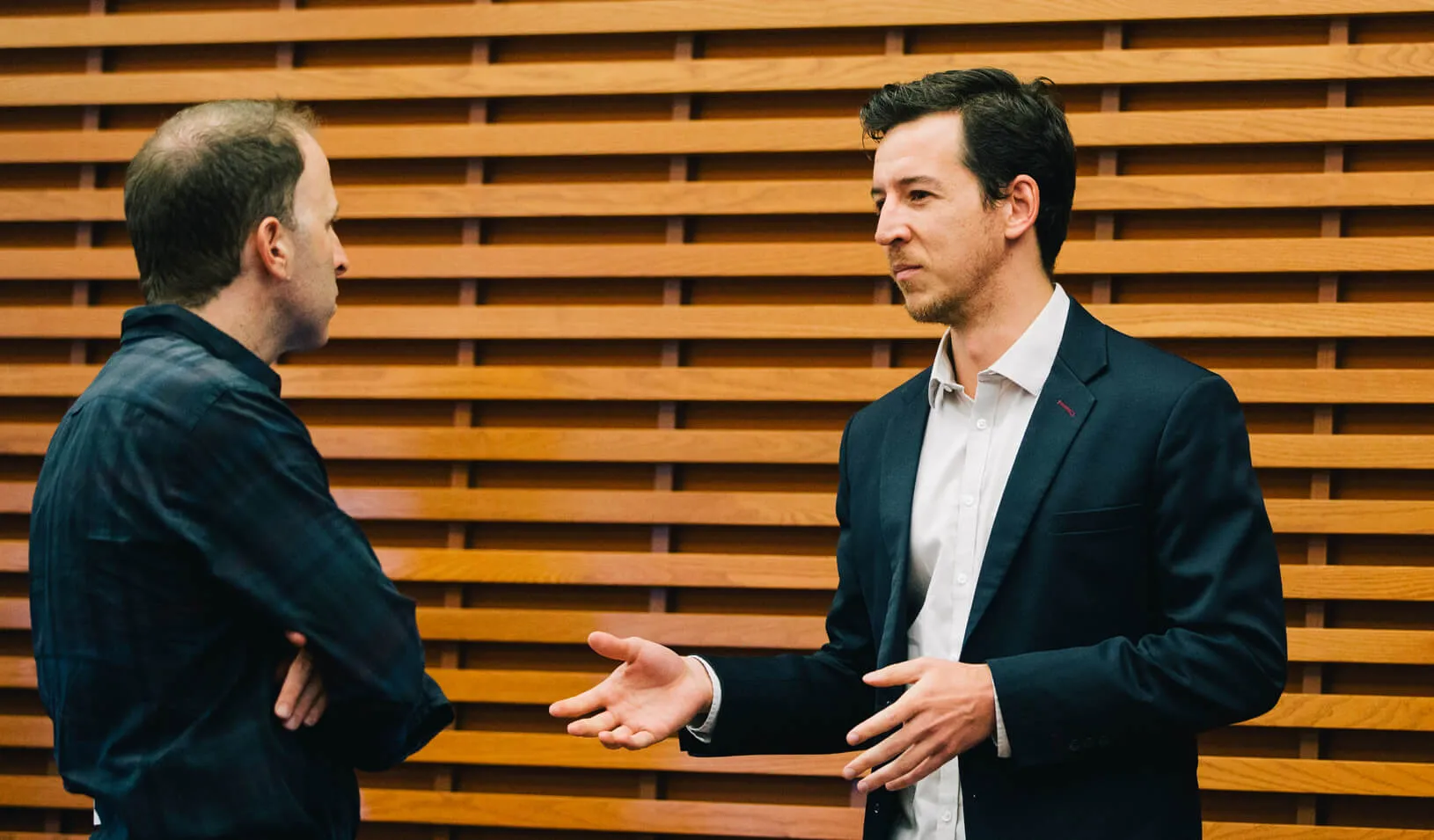
Diego Benavides, MBA ’18, started a Leadership Academy for youth across Latin America. | Elena Zhukova
The problem: Diego Ontaneda, MBA ’18, saw the poverty and corruption that plagued many Latin American countries while he was growing up in Peru. Motivated youths lacked a space to come together for rigorous studies and leadership training.
The solution: Ontaneda started the Latin American Leadership Academy, or LALA, to bring together students from across South and Central America for an immersive, experiential learning school. He modeled the school after the award-winning African Leadership Academy, founded by Stanford GSB alumni Fred Swaniker, MBA ’04, and Chris Bradford, MBA/MA ’05.
For media inquiries, visit the Newsroom.
